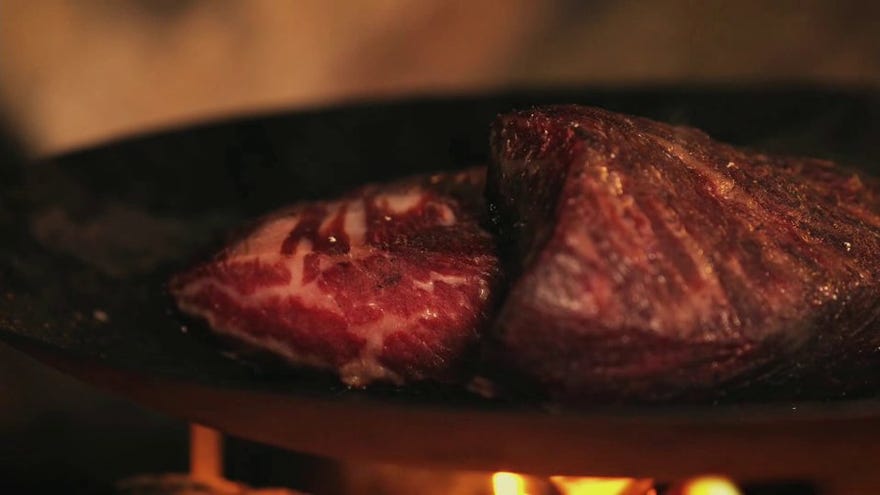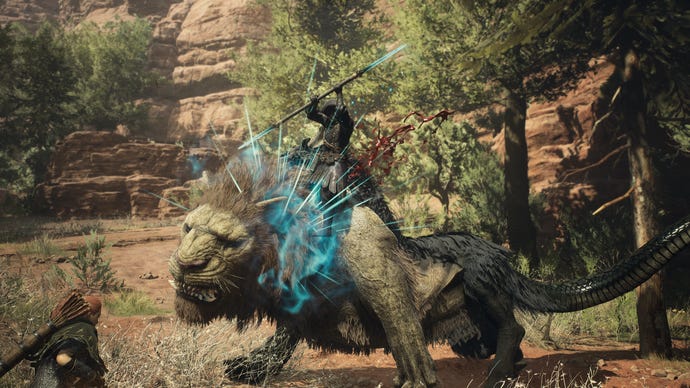HomeNewsDragon’s Dogma 2
Dragon’s Dogma 2 cooking features “real meat” - does that mean vegans shouldn’t play it?Raising the steaks
Raising the steaks
Image credit:Flowtaro/Capcom
Image credit:Flowtaro/Capcom

Image credit:Capcom

Speaking of performativeness, it’s at this point that I must yet again whip off my hood, arrange my features into a diabolical rictus, and announce that I am, in fact, one of those perfidious vegans. “Lord have mercy!” you gasp, reeling back from the screen and defensively stuffing a handful of pork scratchings into your mouth, while making a sign to avert evil spirits (assuming you’re not also vegan). Be calm, friend! I am not going to give you cooties or lecture you about your dietary preferences. What I’m going to do is talk briefly about the ways in which representations of meat in videogames suggest a degree of anxiety about modern meat production, whether you’re vegan or no - a desire to shut down the abattoir and rediscover the act of hunting and butchering animals in the wilds.
For all meat’s ubiquity, modern meat production can seem intangible. Thousands of chickens, cows, sheep, pigs and fish are slaughtered every second, but for many of us, this happens behind walls, fences and laws against filming inside slaughterhouses; as such, it can’t really be detected in the product that ends up in a supermarket freezer. Relatively few people in affluent countries like the USA or UK are directly involved with the deaths of the creatures they consume, and the process of turning animal corpses into sellable meat is itself a curious kind of “artmaking” that keeps the carnage at a distance. It’s the transformation of suffering, mutilated bodies into something shiny, bleached, hairless, predictably proportioned and devoid of signs of trauma, not really “animal tissue” at all.
It’s perhaps no surprise, then, that there’s a steady appetite for ways of preparing and eating meat that make the act of meat production feel “real” again. These are the varieties of bucolic animal agriculture you see represented on supermarket boxes or labels. Making allowances for cultural differences between Japanese game developers and white English folk like myself, I think Dragon’s Dogma 2 is one of manysurvival gamesor survival-ishRPGsthat channel nostalgia for a quasi-fantastical era when the production of meat was more immediate, “honest” and homely, an opportunity for tribal intimacy around a crackling blaze hung with freshly killed deer. If meat production today relies on separation and alienation - not just from the beasts, but from the often exploited humans who work in slaughterhouses - then escapist fictions like these are both a way of maintaining that distance and symptoms of a desire to overcome it.
Anyway, I’m rambling while I try to unpick my feelings about the revelation that Dragon’s Dogma 2 is a meatier experience than we generally mean when we call a game “meaty”. If you find this stuff interesting, I recommend Tom Tyler’s bookGame- “a playful reflection on animals and video games, and what each can teach us about the other”.